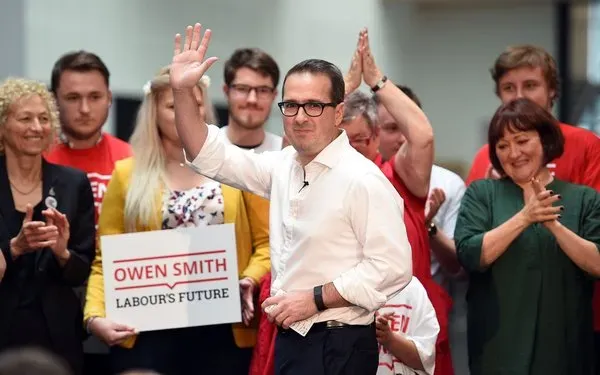Owen Smith: You Had One Job
“I’m the bad guy? How’d that happen? I did everything they told me to.”

Well that was a tiring and pointless campaign, wasn’t it? As if 2016 wasn’t rough enough with the assassination of a Labour MP and the spectre of right-wing politics looming at home and abroad, Jeremy Corbyn had to direct many of his energies throughout the year instead inward, against those in his own party, despite the membership backing him in historic, overwhelming fashion.
Just as Labour looked like a genuine threat to the Tories, the Westminster elites decided they knew better than the thousands of members in the Labour party when it came to leadership; they wanted it to be one of their favoured folks, not someone who actually reflected the views of the party’s base, one that enjoys the status of being the largest socialist party in Europe.
Angela Eagle launched her own perfume leadership challenge in opposition to the sentiments from within her own constituency, only to in turn be challenged by misogynist Owen Smith.
Yes, Owen Smith may have looked like D-Fens from the movie Falling Down, but he knew what he was doing. A former corporate lobbyist, he was the perfect representation of New Labour’s vacuous, soulless ideology. Given that Jeremy Corbyn’s incredible success was in part due to the fact he wasn’t a public relations-savvy businessman, this seemed an odd choice.
Whether the abusive, bullying onslaught the Labour leader had endured was intended to scare him and make him quit before a formal leadership challenge ever commenced, or they simply massively underestimated him in thinking this nonperson, Owen Smith, actually had a chance of beating him, is a fascinating question that remains unclear to this day. Either way, it certainly was, as people on Twitter called it, a “chicken coup.” It was calamitous, and disastrous. More importantly, it was disastrous for Labour, at a time when they needed to be challenging the brand-new unelected Tory leadership of Theresa May.
So, given this awful, corporate, bland presentation, you can be forgiven for simply assuming Owen Smith is a career politician.
Aside from bullying Corbyn and his supporters in order to provoke a response that they could use to tar all Corbynistas with the same brush – Andrew Marr reading out selective vile tweets from purported Corbyn supporters – it was also important for the Smith campaigners to deflect attention from his Big Pharma background by co-opting this “careerist” tag and attempting, rather cleverly, to apply it to Corbyn, who’s spent decades getting re-elected by his constituents of Islington North, where he actually lives, while Smith was busy putting the “PFI” in Pfizer.
By this rationale, I imagine they thought – since he did not much besides spend years in a cell and then serve office as President of South Africa – Nelson Mandela was a bit of a “careerist” as well, dedicating as he did his entire life to change.
No, Orwellian perspectives aside, Owen Smith was the careerist. Not least because he was representing those colleagues of his in Westminster who felt the Labour party still needed to be utilised in order to open doors to corporate boardrooms – that is why they wanted to sabotage Jeremy Corbyn; he was representing not their interests but the interests of the party members who elected him, with policies that therefore would be favourable to people rather than profits. That’s why nearly a million pounds was pumped into his leadership challenge (about four times as much as Jeremy Corbyn managed to raise in campaign funds).
A friend of mine in the Labour party – not a Corbynista by any stretch of the imagination – recently made a comparison that became popular amongst Smith’s supporters: a boss can’t run a company to just keep the paying customers happy; he has to keep his workers happy too (this analogy was used by May to cast Corbyn as the unpopular boss in her infamous Thatcherite “Remind him of anybody?” Commons remarks). However, my friend also admitted, “If someone is a career politician, their career is to be a politician…so what does that say about them when they can’t even get that job done? They had one job!”
Of course, the truth is, politicians aren’t simply in a career. An MP is supposed to answer not to a corporate boss, but to us. They are not mere workers like you or I, but in theory they are representatives honoured enough to be sent by their locality to parliament to fight for those interests. Given the time it takes, they are compensated rather well for the tasks they carry out, but despite this responsibility still earn less than most bankers or professional footballers. It ought to be the highest honour one can receive, with no greater responsibility than being the one citizen from their area to represent those collective interests. But instead, it’s treated by too many like a birthright, or a nice little addition to a CV on the way to greater power and wealth.
Owen Smith was chewed up and spat out by the very system he stepped forward to represent and protect. But, until that system is democratised for the many and not the few, I suspect he’ll do just fine. After all, his job goes on, and since he did stand up for the cause, it’s one that will lead to a long illustrious career in the boardrooms of those interests.
